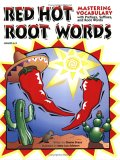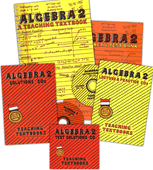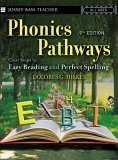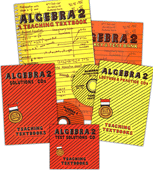Home Schooling - Vacances Scolaires
Buncha Roots
This web page links you to my book of common Greek roots and Latin roots. I published it back in 1994. It is copyrighted. The local education bookstore used to carry it. And I used to sell copies of it in appropriate places on AOL. However, I had to answer just so many questions that it made it not worth my while to sell it on AOL any more. Self-publishing is not an easy task with limited funds, and marketing a book is also difficult … well, for me it is. I have a hard time saying things like, “This is the best Latin roots book ever written!” I have a difficult time because I know that my book of frequently-used Greek and Latin roots can be useful to some, but not useful to others. So now you have a chance to check it out (in its entirety) for yourself before you pay for it through the Honor System!

If you’re going to link to this book, please be so kind as to link to this page:
https://www.vacances-scolaires-gouv.com/2023-2024-calendrier-scolaire
If you decide to link to either the Latin or Greek sections, please realize that I will be periodically moving them.
Great, now that we’ve got all the nitty-gritty out of the way, here’s the book!
Pricing:
$2.50 for students
$7.95 for others (educators included) For those choosing this payment option, one complimentary electronic copy in .pdf format is available upon request as a favor to you. It includes no ads. You must forward the actual Honor System confirmation to me and include your name and email address as the .pdf will be sent as an attachment. This does not confer rights to copy the book.
$12.95 or $17.95 for those wanting to buy a license to make copies of the book for use in their own classroom–click here.
Also, this book is copyrighted, and it is a registered copyright. You do not have permission to upload this book to your ISP’s server and then display it on the web. You may link from your homepage to this page. Please email me if you have any questions. I really do want to be helpful–that’s why I placed this book on the web–but I don’t like being taken advantage of!
Are you wondering why I support learning Latin roots as opposed to learning the complete Latin language? Well, I wrote a short essay looking at some of the reasons that I’ve heard promulgated as good reasons for learning the Latin language. To me, it seems that learning the roots is a better idea than learning the complete language.
Latin Examination
Which to Learn: Complete Language or Just the Roots???
So you’re wanting to have your kids learn Latin, but now you have a choice to make: learn the Latin language or learn the roots of the language.
Learning the Latin language can have its advantages, but I’m not so sure that it endows students with all the rewards and benefits that everyone says it does. Nor am I convinced that most of the supposed benefits of learning the Latin language can’t be learned elsewhere or by other methods.
First off, learning the roots/combining forms of Latin and Greek will increase a student’s vocabulary. That little bit of knowledge is most likely irrefutable, though I know of no randomized controlled trials to support it. I know from personal experience (anecdotal evidence) that my vocabulary increased exponentially by memorizing Latin and Greek roots in high school. I’ve read different figures stating that between 50-80% of the English language is based on Latin roots. If that’s the case, learning Latin roots would be beneficial. No one, however, needs to learn the Latin language itself to be able to benefit from memorizing the roots and their meanings.
As for learning Latin–the actual language itself–why? Some say because it’s so logical that it’s training for the brain. Some say that it trains the mind to think in a logical fashion. Okay … so it’s a good exercise for the brain. So is Algebra. So is Logic. No one has to learn the Latin language just for brain exercise. You don’t have to learn the Latin language to be able to think in an orderly, logical fashion. Why not exercise the brain while learning something a little more practical?
Some say that learning the Latin language early makes it easier for students to learn other Romance languages later. But … um … why learn one language (Latin) just to make it easier to learn another language (Spanish)? Why not just learn Spanish in the first place? We could just as easily say that learning Spanish will make it easier to learn the Latin language later. Further, Latin only helps with the Romance languages, it won’t help with the myriad other prevalent, spoken languages in world (Chinese, Russian, Arabic).
Some say that you’ll understand the English language and its grammar better by learning the Latin language. But wait, English can’t easily (or intelligently) have Latin grammar forced on it–see Ruth Beechick’s You Can Teach Your Child Successfully for an expert’s opinion. (pp 167-171) You don’t need to learn the Latin language to understand English grammar in depth.
I’ve heard that it will help with phonics studies–those that didn’t get a good phonics foundation will get a better one by learning the Latin language because it is a phonetic language. Spanish is also phonetic. English is fairly phonetic also (depending on who you’re talking to). This can’t be a good reason to learn the Latin language. A phonics course would be a more efficient way to brush up on phonics.
One parent emphatically stated that learning the Latin language teaches Logic and that it’s so much easier to learn a complete language than its roots out of context. Learning the Latin language doesn’t teach Logic; it can’t. Additionally, learning the meanings of 300-500 (your choice) roots is much easier than learning a whole vocabulary, syntax, meaning, declensions, etc.–things that are necessary when learning a complete language.
Quite possibly a few people learn/teach Latin as a homeschooling fashion statement. It’s quite fashionable to be learning Latin right now. Maybe it’s a I’ve gotta keep up with the Joneses type of thing. Maybe not. But there’s always something new and trendy–in homeschooling and in life in general.
Maybe some folks learn the Latin language because there are curricula publishers out there writing and marketing Latin programs–kind of a if we build it, they will come type of thing. And once the market has been created, it needs to be sustained and is sustained partially by people that keep defending their position on why the Latin language needs to be learned–possibly. Of course, there are true believers, but there are also those that are less altruistic.
I really think that learning the Latin roots and their meanings to gain a larger vocabulary is imperative, but all the other reasons I’ve heard explaining the need to learn the Latin language seem to be flimsy–or rather, seem to be side benefits (side benefits that can be learned in other ways, I might add) instead of substantive reasons for learning the Latin language. There’s quite a good chance that many of the supposed benefits of learning the Latin language can be gained by learning Latin roots.
If you are one of the many homeschoolers considering learning some form of Latin (complete language or its roots), it won’t hurt a thing for you to examine your goals and the best method to attain them. If folks want to learn the Latin language, great. This is not a bad thing. But I hope folks aren’t choosing the Latin language when learning the roots would supply the same results. We all need to examine our reasons for our curricular choices. Socrates, a great classicist, said (in translation), “… the unexamined life is not worth living…” We could possibly change that to, “The unexamined language is not worth learning.”
Quick disclaimer: The Latin language is sometimes learned by those going into fields such as linguistics or the clergy. Another reason would be to read ancient writings in their original language or because translating them is desired. Reasons such as these for learning the Latin language are not addressed in this essay.
A Selection of Latin Roots and Greek Roots
Introduction
Why I compiled this list: When in high school, I took a vocabulary class based on Greek and Latin roots. Upon reaching college and being enrolled in a Freshman composition class, I started taking the weekly vocabulary tests. I found, much to my amazement and delight, that I didn’t have to study for those tests that were based on Greek and Latin roots. For me, that showed the value of my high school course. Now that our family is homeschooling, I feel that our children would benefit from learning this information. What I wanted was a very thorough alphabetical list (not a workbook) of combining forms, roots, and prefixes that differentiated between Greek and Latin all in one book. I wanted to be able to decide which combining forms would be introduced and integrated into our curriculum. I also wanted to be able to choose when their introduction would be most beneficial. However, when I went to find a book containing the desired information in the desired form, I couldn’t find any. So I decided to compile a list of my own to use. Possibly you can put this list to work for you also.
What will this list do for you: That’s totally up to you and your students. I can make no claims concerning the results you may get if you use this list, whether they be positive or negative. Author and friend of C. S. Lewis, Dorothy Sayers, claims, "[Latin] is the key to the vocabulary and structure of all the Romance languages … as well as to the technical vocabulary of all the sciences and to the literature of the entire Mediterranean civilisation…"1 She, however, feels that students should learn the Latin language and its grammar, not just a few hundred combining forms. Sayers goes on to inform us, "… even a rudimentary knowledge of Latin cuts down the labour and pains of learning almost any other subject by at least fifty per cent."2 Douglas Wilson, founder of Logos School and author of numerous educational books, states, "About 80 percent of our English vocabulary comes to us from Latin and Greek."3 It seems that some form of knowledge of Latin and Greek will be of great benefit to most English-speaking people, especially if vocabulary enhancement is the objective. This list is not a Latin or Greek language course. It is a lengthy list of combining forms to learn. Once learned, many English words of Latin or Greek derivation will be understandable. It could almost be described as putting a jigsaw puzzle together. And after years of working on it, all the pieces finally fit. Take a peek farther back in this book for examples.
How the list is organized: On the left margin is the prefix, combining form, word, or root. There is not a lot of consistency here. Sometimes an infinitive is used, sometimes a root. This should not cause any problems since we are not using this list to learn Latin or Greek or how to conjugate foreign verbs. In the center column is the meaning or meanings of the combining form/prefix. On the right is a list of examples that utilize the combining forms/prefixes. The number of examples was kept small to keep the list from becoming too cumbersome. Also, part of acquiring a good vocabulary is achieved by using the dictionary and the mind to discover words that utilize the combining forms–not by having all the English words that utilize Latin and Greek combining forms easily available to the student.
Ways you may choose to use this list: One way is a five-day plan. Arbitrarily choose ten combining forms and/or prefixes. Give them to your student(s). The student(s) will then be required to look up the meanings of the combining forms and/or prefixes and make a 3x5 card for each, putting the definition on the back. On the next day the meanings can be reviewed. Two English words that incorporate the combining forms/prefixes can then be found for each combining form/prefix and used in a sentence. (Two English words for each combining form/prefix.) On the third day, the instructor can review the assignment from the day before and choose 20 of the English words found by the student(s) or add a few of her/his own to make up 20 words for a vocabulary test. On the next day the student(s) can study the 20 English words. On the last day, the test can be given. The word should be given verbally to the student(s). It should be spelled correctly by the student(s). Then the definition should be written by the student and the word should also be used properly in a sentence.
Day 1: Ten (10) combining forms/prefixes are given to the student. Example: colare, deus, fabula, filia, hospes, manus, somnus, sanguis, terra, verus
Put these on 3x5 cards. Look up the definitions and write them on the back. These meanings should be memorized.
Day 2: Review the meanings of the combining forms/prefixes. The student can find, using the dictionary, 2 English words for each combining form/prefix. Then an original sentence can be constructed. (NOTE: On occasion finding two examples will be very difficult.)
Example: (colare: portcullis, colander)
portcullis: an iron gate suspended and raised and lowered by a chain, castles often utilized them. The knight quickly lowered the portcullis when he saw the raiders approaching.
colander: a container with holes in the bottom that is used to facilitate cleaning or draining of vegetables or pasta. My mom’s colander was used most often for draining spaghetti noodles.
The student will have 20 English words, 20 definitions, and 20 sentences when this assignment is completed.
Discount Prices. Huge Selection. Excellent Service.
Day 3: The instructor can give a test to see if the meanings of the combining forms/prefixes are sufficiently memorized. The instructor can choose 20 words from yesterday’s assignment that will be on the test on Day 5. If the instructor has more than one student, the selection of 20 words will be easier since the instructor will have more to choose from. The instructor should choose words that she/he feels will be most beneficial for the student to know. If only one student is involved, the instructor may need to do some extra work and choose some English words of her own to supplement or replace some of the student’s list so that the most useful words will be learned. This is a judgment call for the instructor. Possibly the student could be required to find 4 English words rather than just 2.
Day 4: The student should study the 20 words received from the instructor on Day 3.
Day 5: Test–20 English words. The student(s) must supply the definitions and original sentences. Some instructors may wish to include the combining forms/prefixes and their meanings to the test (if this hasn’t already occurred) since memorizing the combining forms/prefixes will help in the future when the student(s) comes upon an unfamiliar word in his studies.
If the above schedule is followed, there are enough combining forms, roots, words, and prefixes to last at least 45 weeks which is nine weeks longer than a usual 180-day school year. The list includes over 450 combining forms, roots, words, and prefixes. To keep track of which combining forms you have covered, you might write the date completed in the margin in a color that has been assigned to that student.
Another possible way to use this list would be to give the student(s) two words from the far right column. Then ask the student(s) to find the root, the meaning, and two more examples of the combining form being used in English. Sentences could be written for each word. (NOTE: On occasion it will be very difficult or impossible to find two more examples.)
A benefit of having a comprehensive list of Latin and Greek combining forms is its adaptability to many learning styles. Those of you who are using the unit study method may choose words that go along with the unit being studied. Some instructors may want to choose the most prevalent combining forms and cover them all in one semester. My high school offered a class in Latin and Greek roots; it fulfilled the English requirement for one semester. However, in my Freshman composition class at college, Latin and Greek roots were covered in about a month. If your child(ren) are younger and there is no hurry, this list could last many years. Of course, you may only want to introduce one new combining form a week. There are probably as many ways to use this list to help students learn as there are instructors who will use the book. Experiment, and then if you have time, let me know what works for you.
The shortcomings (or what may be perceived as shortcomings): There are many. 1) Suffixes are purposely not included because their meanings seem too abstract for memorization by students who are below the secondary level. 2) There are errors in this list. This list was gone over quite extensively to eradicate mistakes and typographical errors. Some mistakes crept in because at times it seemed like deciphering etymologies was more of an art that an exact science. The convoluted path that some words have taken to get into the English language is sometimes amazing. Perhaps the errors will be caught if this list is revised. 3) This list is incomplete. There are many more combining forms that could be listed; however, the line had to be drawn somewhere. Although this list is incomplete, it includes more than enough entries to help a diligent student develop an entirely adequate vocabulary of words derived from Latin and Greek combining forms. 4) Medical terms are not included, but they can be found in any good medical dictionary such as Taber’s Cyclopedic Medical Dictionary. 5) There is no money-back guarantee if you don’t like this list. 6) This is not a workbook. The student has to find the vocabulary words with the use of a dictionary, without the help of a list already plotted out for them. The instructor has to choose which words would be best to learn. The student alone must write sentences out that use the vocabulary words; sentences are not already written out with a place to fill in the vocabulary word. This is just a list, not a workbook. 7) There are no grade-level guidelines included with this list. Instructors will have to adapt this list to fit the learning level, interest level, and learning style of their student(s).
What else is needed: A good dictionary is needed. By “good dictionary,” I mean one that gives the etymological information about a word as far back as is known (usually Indo-European–IE). Just because a dictionary has a recent copyright date does not mean that it will be helpful in learning the origins of words. (I know this because I have a flashy 1991 dictionary that is less than helpful etymologically.) If you don’t have a good dictionary, you will think that many example words have nothing to do with the combining form listed. Also, finding other words derived from the combining form/prefix will be difficult. If the dictionary gives scanty etymologies, it will not be easy to ascertain exactly what combining form the word is derived from. Please compare dictionaries before you buy. The dictionary listed in the Bibliography is excellent.
.
.
Endnotes
l. Sayers, Dorothy L., “The Lost Tools of Learning,” in Rosamond Kent Sprague (ed.), A Matter of Eternity, William B. Eerdmans Publishing Company, Grand Rapids, MI, 1973, pp. 121-122.
-
Ibid., p. 121.
-
Wilson, Douglas, Recovering the Lost Tools of Learning: An Approach to Distinctively Christian Education, Crossway Books, Wheaton, IL, 1991, p. 87.
Copyright© 1994 Tammy McQuoid
Latin
Date
Latin Prefix(es)
Definition(s)
Examples of Prefix(es)
… ab, a from, down, away abstract, aversion, abject
… ad, ac, af, ag, al, an, ap, ar, as, at, a to advent, accent, accelerate, affectation, aggravate
… ambi both ambidextrous, ambiance
… ante before antecedent, antebellum
… bi two biennium, bifurcate, bicarbonate
… circum, circa around, about circumnavigate, circumference
… com, col, con, cor, co closely along, together, next to, with collusion, coheir, consort, cooperate, compact
… contra, counter against contradict, contraband, counterfeit
… de from, down, entirely deplete, demerit, depress, defrost, decline, defunct
… di, dis, dif away, from, apart different, disburse, digest
… duo, du two dubious, duet, duplication
… ex, e, ef, ec, es from, out of, without effervescent, exhale, escape, extradition, eclectic
… extra beyond extrapolate, extraordinary
… in, il, ir, im in, into, on infer, induct, incarnate, illuminate, irrigate, imbibe
… in, il, ir, im no, not, without, non insignificant, illiterate, irresponsible, impossible, imbecile, inappropriate,
… inter among, between interchange, intervention, intercept
… intra, intro within, inside of intramural, intrastate, intramuscular
… milli, mille thousand millennium, millimeter
… multi, multus much, many multitudinous, multifaceted, multiply
… non not nonresident, nonconformity
… ob, o, oc, of, op, against, before, toward, for offer, omit, occur, obscene, oppress
… omni all, everywhere omniscient, omnivorous, omnificent
… quadri, quadr four times, four fold quadriceps, quadrisect, quadrivium
… per through, completely persecute, pilgrim, perfect, pellucid
… post after, behind postdate, postdiluvian
… pre before precedent, precept, preposition
… pro, pur before, for proceed, purport, pursue
… re back, again recompense, refine
… retro back, backward retrograde, retrofit
… se apart, aside seclude, select
… semi half semicircle, semiprivate
… sub, suc, suf, sug, sum, sup, sur, sus under, less than, inferior suffer, submarine, succumb, suggest
… super, supra above, superior, surpassing soprano, superabundance, superintendent
… trans across, through transcontinental, transit
… tri three triangle, triceps, Triassic
… ultra beyond, on other side of ultrasound, ultraconservative
Date
Latin Suffix
Definition(s)
Examples of Suffix
… -itis inflammation neuritis, conjunctivitis
Join the fun! Start bidding now. The prices are unbelievable!
Date
Latin Root(s)
Definition(s)
Example(s) of Root(s)
… acerbus, acris, acuere sharp, to sharpen, needle, bitter acerbate, acupuncture, acuity, acrimony
… aequare to make equal, even equivocate, adequate, equilibrium
… aevum age coeval, medieval
… ager, agri, agro field agrestic, agronomy
… agere, actum, agitare to act, to do agility, react, agitate
… alius other, else alias, alienate
… alter other altercation, adulterate
… altus high altimeter, exaltation, alto
… ambulare to walk, to go preamble, ambulatory
… amare, amor, amatum, amicus to love, love, friend amateur, amiable, enamored
… anima life, soul, breath, mind animosity, inanimate, unanimous
… annus year biennial, centennial, annual
… apparere to come forth, be visible apparent, appearance, apparitor
… aptare, aptus, apere to fit, suitable aptitude, adaptable, ineptitude
… aqua water aqueous, aquarelle
… arbiter judge arbitration, arbitrary
… arbor tree arboretum, arboreal
… ardere to burn arduous, ardor
… artis art artifice, artifact, artisan
… audire to hear audit, audible
… augere to increase augmentation, augur, august
… avis bird avionics, aviation, aviary, avian
… beatus blessed, happy beatific, beatitude
… bellare, bellum to wage war, war rebellious, bellicose
… bene well benevolence, beneficent
… bonus, bon good bonanza, bonny, bon voyage
… brevis short, brief abbreviate, breviary
… cadere fall recidivism, cascade, cadaver, decadent
… caedere, cide to cut, kill incision, pesticide
… canere, cantare, cantus to sing recant, chant, cantata
… capere, captum, cip, cept to take, hold, contain capacious, incipient, intercept participate, capable, captive, conceive, precept
…
Rummy Roots
Rummy Roots, Set 2
Grades 7+
Word Roots CD Learning Game
Word Roots Book
High School Level
The Book of Roots:
Advanced Vocabulary Building from Latin Roots
… caput, capitis head cape, chapter, biceps, capital
… carnis flesh carnal, carnival, incarnate, carnivore
… cavare, cavus to make hollow cavernous, cavity, excavate
… cedere, cessum to go, withdraw, move concession, recede, access
… centrum center eccentric, concentric, concentrate
… centum, centi hundred, tenth, ten percent, centimeter, centurion
… cernere, certus to see as being different, to sift, distinguish discern, secret, certitude
… civis, civilis citizen, community civic, city, civility
… clamare, clamor to shout, cry out acclaim, clear, to make clear reclamation clarare, clarus, clarify, clarity, declaration, claret
… claudere, clausum to shut, close recluse, cloister, enclosure, conclusion
… clemens mild, merciful clemency, inclement
… clinare to lean, slope clinometer, incline
… colare to strain, filter portcullis, percolate, colander
… colere, cultus to till, care, cultivate cultivation, culture, cult
… coquere, coctum to cook, to mature precocious, concoction, cook
… cor, cordis heart courage, cordial, accord
… corium skin, hide excoriate
… corona crown corona, coronation, coronary
… corpus body corporation, corporeal
… credere, credens to believe, trust credentials, credit, incredible
… crescere, cretum to grow crescendo, concretism, accretion, increase
… crimen crime, offense criminology, incriminate
… cruciare, crux, crucis to torture, cross excruciating, crusade, cruzeiro
… culpare to blame, fault culpable, exculpate
… cumulare to heap up cumulative, accumulate
… curare, cura, curatus to take care of, concern curate, curious, manicure
… currere, cursus, cour to run, go occur, precursor, concur, course
… dens, dentis tooth denture, endodontia, dentifrice
… deus, dei god deify, deity, deism
… dexter, dextro right, right hand ambidextrous, dextrorotation
… dicere, dictare to speak, say abdicate, indict
… dignus worthy, fitting, suitable condign, dignitary
… dirigere, directus to direct dirge, dirigible, address-- – -- – --see “regere” below
… docere, doctum to teach document, docent, doctrine
… dominus lord, master danger, domineer
… domus a dwelling, home domesticity, major-domo
… donare, do to give, to forgive condone, donation, donor
… dormire, dorm to sleep dormouse, dormitory
… ducere, ductum to lead, take, bring abduct, seduction, conducive, duke, education
… durare, durus to harden, hard obdurate, duress
… errare, erratum to wander, go astray aberration, err, erratic
… fabula story confabulate, fable, fabulous
… facere, factum, fect, fic to make, to do manufacture, sufficient, facsimile
… fallere to deceive, disappoint fallacious, infallible, fail
… ferre, latum to bear, to carry relate, confer, referendum
… ferrum iron ferrotype, ferric, ferrous
… fervere to boil, glow, rage fervor, effervescent
… fidere, fidelis, fides to trust, believe, faith perfidy, fiduciary, confidant
… filius, filia son, daughter (respectively) filial, affiliation
… finire, finis, fin to end, to limit infinity, finite, confinement
… firmare to make firm, strengthen affirm, confirmation, firmament
… figare, fixus to fasten, attach fixative, crucifix, suffix
… flare, flatus blow deflate, inflation
… flectere, flexus to bend flexible, deflection, inflection
… fluere, fluxum, fluctus to flow confluence, fluid, effluvium, influx, flume
… foedus, fed league confederacy, federation
… fortis strong fort, comfort, fortify, force
… frangere, fractum to break fraction, frangible, infringement
… frater brother fraternal, fraternize
… fugere, fugitum to flee centrifugal, fugue
… fumus smoke fumitory, fumarole
… fundere, fusum to pour refund, diffuse, profound
… generare, genus1 birth, origin, race, species, kind, to beget, produce generous, generic, gentle, genre, engender, generation
… gerere, gestum to carry, to bear belligerent, gesture, digest, gestation
… glomerare to form into a ball conglomeration, glomerulus
… gnoscere, cognoscere, gnarus, cognitum to know incognito, cognition, ignorant, gnostic
… gradi, gressus, gradus to step, to walk, a degree progress, graduate, centigrade
… granum, grani seed, kernel granary, granule
Good company. Good Sheet Music. Good prices. (Electronic metronomes, too!)
… gratia, gratus agreeable, favor, thanks congratulate, gratitude, grace
… gravare, gravis to weigh down, heavy aggravate, gravamen, gravid, grief
… grex, gregis, gregar flock, herd, to gather into a flock segregate, congregation gregarious
… habere, habitum to have, hold habit, inhibit
… haerere to stick coherence, adhere
… herba grass, herb herbivorous, herbaceous
… hilarare, hilaris to gladden, merry hilarious, exhilarate
… homo man homicidal, hominize
… horrere to shudder, terrible horrendous, abhor
… hospes guest, host hospice, hostage, hostess
… ire, itum, itineris to go, journey, walk itinerant, transit, initiate
… jacere, ject, jactum2 to lie, cast oneself down, to throw reject, adjacent, eject
… jicere2 to throw between interjection
… judex, judicare judge judicious, prejudice, judge
… jungere, junctum to join conjugal, junction, joint
… jus, juris, jurare law, right, to swear jurisprudence, abjure, perjury, juror, injury, justify
… juvenis young rejuvenate, juvenescent
… laborare to work collaborate, elaborate, laboratory
… lacto, lact milk lacteal, lactose
… lapis stone lapis lazuli, lapidate
… latus side lateral, bilateral, collateral
… laudare, laudatum to praise, glory laudable, allow
… lavare to wash lavender, laver, lavish, lavabo
… laxare to loosen, widen relax, laxity
… legere, lectum3 to read, choose, gather elegant, elite, collect, dialect, legend, select, election, neglect
… lex, legis, legalis3 law privelege, illegitimate, legislature, lex non scripta, legal
… liber book libel, libretto
… liber free libertine, deliberate, liberal
… ligare to bind allegiance, ally, oblige, ligature
… lingua tongue, language linguistics, lingual, language
… littera letter obliterate, literature, letter, literati
… locare, locus to place, place dislocate, allocate, local
… loqui, locutus speak, talk soliloquy, loquacious, circumlocution
… lucere, lux, lucis, lumen to shine, light translucent, Lucifer, luminous
… ludere, lusum, ludus to play, to mock illusion, interlude, ludicrous
… luna moon lunate, lunatic, lunation, lunula
… magnus, magna great magnanimous, Magna Carta
… malus, mal bad, evil, wrong malevolent, malfeasance, grand mal
… mandare, mando to order, to command mandate, commandment, mandarin
… manus, mani, man hand emancipate, manifest, manumit
… mare sea mariner, aquamarine, mare
… mater mother alma mater, maternity
… mecari to trade, buy merchant, market
… medius, medio middle medieval, intermediary
… mens mind mention, mentation
… migrare to move from one place to another migratory, emigrant
… militare to serve as soldiers demilitarize, militia
… mille thousand millennium, millivolt
… minimus, minor least, small minimal, minimize, minute
… mirare, miror, mirari to look at, to wonder at miracle, mirage, admiral
… mittere, missum to send, let, go emissary, remit, admittance, commissary
… monere, monitus to warn monitor, admonition
… morbus disease morbid, morbilli
… mordere, morsun to bite morsel, remorse, mordacious
… moris manners, customs morality, mores
… mors, mortis, mori deather, to die post-mortem, mortgage, mortmain
… movere, motus to move locomotive, motion, motor
… multus much, many multiply, multimedia
… mutare, mutatum to change molt, mutation
… nascor, natus to bear, to born native, prenatal, nature, renaissance
… negare, negatus to deny negation, abnegate
… nihil nothing annihilate, nil
… nocere to harm, injure innocent, innocuous, obnoxious
… nominare, nomen, nominis to name, name nominate, misnomer, nomenclature
… norma rule normative, enormity
… notare to mark, note notation, notary, connotation
… novus new renovate, novice, nova
… nox, noct night equinox, noctuid
… nullus none annul, nullifidian
… numerus number enumerate, supernumerary, numerology
… nuntiare, nuntius to report, tell, messenger nuncio, renounce
… oculus eye monocle, binocular
… opus, operari work, to work magnum opus, opera, operative
… parare, par, pari to make equal, equal disparate, parity, peer
… passus, pati suffer patient, passive
… pater father paternoster, patronize
… pax, pacis peace pacific, appease
… pedis, pes foot expedition, pedicel
… pellere, pulsus to drive, driven compel, expel, propellant, pulsate
… pendere, pensare, pendulus to weigh, hang, weight impending, compendium, appendage, expenditure
… petere to rush at, seek impetuous, petulant, petition
… placare, placidus, placere to soother, gentle, to please placate, implacable, placebo, please
… plaudere, plauseum to clap, applaud plaudit, implode
… plenus full plenipotentiary, replenish, plenty
… plere, pletum to fill expletive, replete
… plicare, plicatum, plicit, ply to fold reply, implicate, complicate, explicate, plait
… plus, pluris more pluriaxial, plurality, surplus
… ponere, positum to place position, opposite, depot
… populus people popularity, populace
… portare, port to carry portage, export
… portio share, portion apportion, proportion
… potens, potentis powerful potentate, potentiometer
… prehendere, prehensum to seize, take hold apprentice, reprehensible
… pressus pressed down depress, oppress, impress
… pretiare, prec to value depreciation, precious, price
… primus, primatis first primordial, prima facie
… privare separate, peculiar privilege, deprive
… probare, probatum to prove, test probation, prove
… proximus nearest approximate, proximity
… pugil, pugnare boxer, to fight repugnant, pugilist
Copyright© 1994 Tammy McQuoid
… purgare to clean purge, purgatory, expurgation
… putare to think, estimate computer, reputation
… quaerere, quaesitus to ask, seek exquisite, inquisition, conquer, quest
… radius ray radiation, radian
… radix root radicle, radical, eradicate
… rapere to seize rapture, surreptitious, usurp, ravish
… ratus fixed by calculation reason, ration
… regere, rectus4 right, to make straight erect, rectitude, rectus
… regere, rex, regis4 to rule, king regency, regal, corrigible, regimen, direct, rule, regular
… ridere, risum to laugh derision, ridicule
… rogare, rogatum to ask arrogance, rogation, interrogate
… rotare, rotatus, rota to turn, wheel, turned rotation, rotary, rotor
… rumpere, ruptus to break, broken rupture, interrupt
… sacer, sacrare5 holy, to make holy consecrate, sacrifice, sacrarium
… sagax, sagacis, sapare wise, to taste, know sage, sagacious, sapient
… sal salt salimeter, saline
… salire, saltum to leap, jump sally, saltatory, resile, result
… salvare to save save, salvation, salvage
… sanctus5 holy sanctity, sanctuary, sacrosanct
… sanguis blood sangria, sanguine, consanguinity
… sanitas, sanatorius health, healthy sanitation, sanitarium
… satis, satiare enough, to fill full sated, insatiable, satisfaction
… scandere to climb ascend, descendant, ascension
… scire, sciens to know, knowing omniscient, science
… scribere, script to write, the thing written describe, subscription, scribe
… secare, sect to cut intersection, secateurs
… sedere, sess to sit sediment, sedan, session, president
… seminare, semen to sow, seed seminal, disseminate, seminary
… sentire, sensum to feel, perceive consent, sensible, sentient
… sepsis putrefaction, poison septic, septicemia, aseptic
… sequens, sequi to follow, following prosecute, second, sequential, pursue, non sequitur
… signare, signum to mark out assignation, consignment
… similare, simulare to make like, to feign similar, facsimile, simulation, assimilate
… socius, sociare companion, to join social, society, association
… sol sun solar, solstice
… solare, solus to make lonely, alone solo, solitary
… solvere, solutum to loose solvent, dissolute, soluble
… somnus sleep somnolent, somniloquy
… sonus sound dissonance, unison, sonorous
… sors, sortis lot, a share sort, consortium
… specere, spectum, spic to look at, see perspicacity, specify, spectacle, retrospect, prospect, perspective
… spirare to breathe spirit, aspirator, expire, inspiration, respiration, aspire
… spondere, sponsus to pledge, promise spouse, correspondence
… stare, stet, stat to stand stable, establish, statue, superstition, distant
… stellare, stella to shine, star constellation, stelliferous
… stringere, strictum bind, draw tight astringent, constriction, strict
… struere, structus build, arrange, pile up misconstrue, instruct, instrument
… surgere, surrection to rise, risen insurgency, resurrection
… tangere, tactus to touch tangent, tactual
… tegere, tectus to cover, covered integument, detection, protect
… temperare, tempus time tense, contemporize, temper
… tendere, tent to stretch, strain, thin pretentious, tenuous, contend, tend, tense
… tenere, tain to hold pertain, abstinence, tenacious, tenant
… tentare, tent to touch, try tentacle, tentatively
… terminus limit, end, boundary determine, terminator
… terra earth terra firma, terrace
… torquere, tortum to twist, twisted contortionist, extort, torsion, torque
… tradere to deliver extradite, tradition, treason
… trahere, tract to draw, drawn subtract, tractable, protract
… tribuere, tributus, tribus to assign, allot, pay tributary, attribute, distribute
… trudere, trusus to thrust, thrust intrusion, protrusile
… toxicare, toxicum to smear with poison toxic, toxoplasmosis, toxicology
… tumere to swell tumescence, tumult, contumelious
… turbare, turba to disturb perturb, turbid
… unus, uni one union, unipetalous
… urbs, urbanus city exurb, urbanologist
… vacare, vacuus to be empty, empty vacuity, vacuous, evacuate
… vagari to wander extravagant, vagaries
… valere, validum to be strong, to have worth valor, valid, evaluate
… velle, volens wish, willing volition, velleity
… verbum word proverb, verbatim
… venire, ventum to come revenue, convention, advent, contravene
… vertere, versum to turn, change, incline vertigo, verse, introvert, versatile, anniversary
… verus true verily, verify, very
… vestire to dress vestment, divest, investiture
… via way pervious, viaticum
… videre, visum see, look, provide provident, visible, supervise
… vincere to overcome, conquer invincible, convince, victor
… violare, violatus to violate violation, inviolate
… vir man triumvirate, virago
… vita life vitality, vitamin
… vivere, vita to live, life revive, viviparous, vonvivial
… vocare, vocatum, vox to call, voice vociferous, convocation, irrevocable, revoke
… volvere, volutum turn involve, revolt, devolve
… vorare to devour voracious, carnivore, omnivorous
… . . .
… . . .
… . . .
… . . .
… . . .
… . . .
… . . .
… . . .
… . . .
… . . .
… . . .
… . . .
… . . .
… . . .
… . . .
Endnotes
1 GENUS – see Greek GEN. It seems that most GENUS words are of Latin derivation.
2 The difference between jacere and jicere seems negligible.
3legere, legis, etc. are all related, but they are listed separately since there are so many English words that are derived from them.
4regere, rex, rectus, etc. are all related, but they are listed separately since there are so many English words that are derived from them.
5Sacer, Sanctus, etc. are all related, but they are listed separately since there are so many English words that are derived from them.
Here’s some other vocabulary and Latin and/or Greek roots (etymology) books that you might find helpful. To find out more about the items, please click on the titles.
Textbook-style Roots Books
Words on the Vine: 36 Vocabulary Units on Root Words
Claudia Vurnakes / Paperback / Published 1998
Red Hot Root Words, Book 1, Gr. 3-5
Dianne Draze / Paperback / Published 2005
Red Hot Root Words, Book 2, Gr. 6-9
Dianne Draze / Paperback / Published 2005
Vocabulary from Latin and Greek Roots
Prestwick House / Paperback / Published 2003-2005
Book 1, Book 2, Book 3, Book 4, Book 5, Book 6
English Words from Latin and Greek Elements
Donald M. Ayers, et al / Paperback / Published 1986
English from the Roots Up : Help for Reading, Writing, Spelling, and S.A.T. Scores : Greek Latin Vol 1
Joegil K. Lundquist / Paperback / Published 1996
English from the Roots Up : Help for Reading, Writing, Spelling, and S.A.T. Scores : Greek Latin
Joegil Lundquist / Hardcover / Published 1998
English From the Roots Up Flash Cards
Joegil K. Lundquist / Published 1993
Noun Flash Card/CD Pack (Latin and others)
Power-glide
Words & Ideas (review)
William J. Dominik / Paperback / Published 2002
Jensen’s Vocabulary (Roots Study)
Frode Jensen / Paperback / Published 2002
Word Roots: Learning the Building Blocks Level A
Cherie Blanchard / Paperback / Published 2002
Word Roots: Learning the Building Blocks Level B
Cherie Blanchard / Paperback / Published 2002
Word Elements: How They Work Together
Riese and LaSalle / Paperback / Published 1995
Teacher’s Manual for Word Elements
Rummy Roots (card game)
Eternal Hearts / Published 1992
More Rummy Roots (2nd pack of Rummy Roots)
Eternal Hearts / Published 1994
Vocabulary Vine (review)
Nancy Paula Hasseler / Paperback / Published 2003
Instant Vocabulary
Ida L. Ehrlich / Paperback / Published 1988
Merriam Webster’s Vocabulary Builder
Mary Wood Cornog / Paperback / Published 1994
Etymology and/or Roots Books
Kleins Comprehensive Etymological Dictionary of the English Language
Ernest Klein / Hardcover / Published 1971
English Vocabulary Quick Reference: A Comprehensive Dictionary Arranged by Word Roots
Roger S. Crutchfield / Hardcover / Published 1998
Chambers Dictionary of Etymology
Robert K. Barnhart (Editor) / Hardcover / Published 1999
The Barnhart Concise Dictionary of Etymology
Robert K. Barnhart / Hardcover / Published 1995
Word Stems : A Dictionary
John Kennedy / Paperback / Published 1996
Dictionary of Word Roots and Combining Forms
Donald J. Borror / Paperback / Published 1960
Oxford Dictionary of English Etymology
Charles T. Onions (Editor) / Hardcover / Published 1983
The Concise Oxford Dictionary of English Etymology
T.F. Hoad / Paperback / Published 1993
The Merriam-Webster New Book of Word Histories
Paperback / Published 1991
Dictionary of Word Origins
John Ayto / Paperback / Published 1993
Word Parts Dictionary: Standard and Reverse Listings
Michael J. Sheehan / Library / Published 2000
The Concise Dictionary of English Etymology (Wordsworth Collection)
Walter W. Skeat / Paperback / Published 1998
The Facts on File Encyclopedia of Word and Phrase Origins
Robert Hendrickson / Hardcover / Published 2000
The Facts on File Encyclopedia of Word and Phrase Origins (Facts on File Writer’s Library)
Robert Hendrickson / Paperback / Published 2000
Morris Dictionary of Word and Phrase Origins
William Morris / Hardcover / Published 1998
English Vocabulary Elements
Keith Denning / Paperback / Published 1995
Comparative Indo-European Linguistics: An Introduction
Robert S.P. Beekes / Paperback / Published 1995
NTC’s Dictionary of Latin and Greek Origins : A Comprehensive Guide to the Classical Origins of English Words
Bob Moore / Paperback / Published 1997
Our Greek and Latin Roots (Awareness of Language)
James Morwood, Mark Warman (Contributor) / Paperback / Published 1990
The Greek and Latin Roots of English
Tamara M. Green / Paperback / Published 1994
Dictionary of Roots of European Languages
Grandsaignes d’Haute / Hardcover / Published 1994
Greek
Date
Greek Prefix(es)
Definition(s)
Examples of Prefix(es)
… a, an not, without amoral, anarthria
… amphi about, around, both amphibian, amphibolite
… ana up, against anapest, anasarca
… anti against, opposite antivivisection, antipodes
… cata down catacomb, catapult
… dia, di across, through dialysis, dialect
… epi upon, over episode, epistle
… exo outside, outer part exoteric, exostosis
… eu well euphemism, euthanasia, eugenics
… heteros other heterodox, heterogeneous
… homos same homonym, homoiothermal
… hyper over, extremely hypergamy, hyperpnea
… hypo under, in smaller measure hypocrite, hypocaust
… meta after, over, between metaplasia, metathesis
… para beside parable, paradox
… peri around, about perimeter, periphery
… poly many, much polygamy, polyhedron, polyglot
… pro before procrastinate, projectile
… syn, sym, syl, sys together, with, by means of syllable, synapsis, syncretism
Date
Greek Suffix
Definition
Examples of Suffix
… osis state, condition, action neurosis, psychosis
Tammy’s (Mostly) Home Schooling Curriculum and Book Reviews
I like hanging out at some of the homeschool bulletin boards. It seems like some of the same curriculum questions keep popping up over and over. So I’ve put a few reviews up here to live permanently. Maybe they’ll help you out a little. There will be more posted here as time goes by.
In most cases we are using, have read, or have used these books in our home school.** Hopefully these curriculum reviews can help you to decide which books and/or curriculum you might find helpful or interesting. Or on the other hand, you may be able to find that a certain homeschool curriculum or book just isn’t for you!




Contracting, Timber Framing, and Computer Book Reviews
Well, I’ve been waiting a while, and it looks as though my husband isn’t going to find time to write the reviews any time soon. However, he gave me a list of books that he recommends. Here it is! Just click on the title or the picture of the book and that will take you to Amazon.com where there might be a review or two for you to read!
The Complete Manual of Woodworking
by Albert Jackson
ISBN: 0679766111
check for a USED COPY at Powell’s
Homing Instinct:
Using Your Lifestyle to Design and Build Your Home
by John Connel
ISBN: 0070123462
check for a USED COPY at Powell’s
The Not So Big House:
A Blueprint for the Way We Really Live
by Sarah Susanka, Kira Obolensky
ISBN: 1561581305
check for a USED COPY at Powell’s
How to Plan, Subcontract and Build Your Dream House
by Warren V. Jaeger
ISBN: 0964782405
check for a USED COPY at Powell’s
Straw Bale House
by Steen, Steen and Bainbridge
ISBN: 0930031717
(Straw Bale homes seem to
be all the rage these days)
check for a USED COPY at Powell’s
The New Natural House Book:
Creating a Healthy, Harmonious
and Ecologically Sound Home
by David Pearson
ISBN: 0684847337
check for a USED COPY at Powell’s
check for a USED COPY of an older edition at Powell’s
More
Healthy Homes
Books
Healthy by Design: Building and Remodeling
Solutions for Creating Healthy Homes
by David Rousseau, James Wasley
ISBN: 0881791350
check for a USED COPY at Powell’s
Prescriptions for a Healthy House : A Practical Guide for Architects, Builders and Homeowners
by Paula Baker
ISBN: 0970210701
check for a USED COPY at Powell’s
Timber-Frame Home:
Design, Construction, Finishing
by Tedd Benson
ISBN: 1561581291
check for a USED COPY at Powell’s
Timberframe:
The Art and Craft of the Post-And-Beam Home
by Tedd Benson, Norm Abram
ISBN: 1561582816
check for a USED COPY at Powell’s
Build a Classic Timber-Framed House:
Planning and Design, Traditional
Materials, Affordable Methods
by Jack A. Sobon
ISBN: 0882668412
check for a USED COPY at Powell’s
Timber-Frame Houses
(Fine Homebuilding’s Great Houses Series)
ISBN: 156158150X
check for a USED COPY at Powell’s
photo not
available
Building the Timber Frame House:
The Revival of a Forgotten Craft
by Tedd Benson and James Gruber
ISBN: 0684172860
check for books (new and used) by Tedd Benson at Powell’s

Building with Logs
by B. Allan MacKie
ISBN: 1552091023
check for a USED COPY at Powell’s
check for other log-building books by B. Allan MacKie at Powell’s
Running a Successful Construction Company (For Pros by Pros)
by David Gerstel
ISBN: 1561585300
(The nitty gritty of running a construction
company–very helpful book.)
check for a USED COPY at Powell’s

2006 National Construction Estimator:
Book plus CD-ROM
by Dave Ogershok
ISBN: 1572181591
(The National Construction Estimator
gets a lot of use around here.)
check for other estimating guides at Powell’s
2006
2006 National Home Improvement Estimator
by Ben Moselle
ISBN: 1572181613
2006

Standard Handbook of Architectural Engineering
by Robert Brown Butler
ISBN: 0079136923
check for a USED COPY at Powell’s
Architectural Graphic Standards
by Charles Ramsey, Harold Reeve Sleeper, John Ray Hoke Jr.
ISBN: 0471348163 hardcover
Architectural Graphic Standards CD VERSION
check for a USED COPY at Powell’s


More links to construction books after the computer books section
Now for the computer books and software that my husband recommends. Yep, he’s still too busy working to write any reviews. Hopefully other readers have left their comments about the books below at Amazon.com for you to read.
HTML 4 for the World Wide Web: Visual Quickstart Guide
by Elizabeth Castro
ISBN: 0201354934
check for a USED COPY at Powell’s
Special Edition Using HTML 4 w/CD
by Molly E. Holzschlag
ISBN: 0789718510
Perl and CGI for the World Wide Web:
Visual Quickstart Guide
by Elizabeth Castro
ISBN: 020135358X
check for a USED COPY at Powell’s
Homeschooling Curriculum and Book Reviews by Title
Curricula and Curriculum-Type Books
Literature, Pleasure Reading and Read Alouds
Alfred’s Essentials of Music Theory
Alpha-Phonics
“And What About College?”
Around the World in a Hundred Years:
From Henry the Navigator to Magellan
Augustus Caesar’s World
The Awesome Egyptians
Beautiful Feet Books Ancient and Medieval Study Guides
The Big Dipper
Blood, Bones and Body Bits
Bob Books: Set 1
The Brain Explorer
Brendan the Navigator:
A History Mystery About the Discovery of America
Bully for You, Teddy Roosevelt!
Can’t You Make Them Behave, King George?
Chemical Chaos
China’s Long March : 6000 Miles of Danger
Christian Home Educators’ Curriculum Manuals
A Chronicle of America: Colonial Times
Cozy English Courses
Critical Thinking in United States History
Cultural Literacy
Cyrus the Great
Dictionary of Cultural Literacy
The Double Life of Pocahontas
An Easy Start in Arithmetic: Grades K - 3
Fatal Forces
Format Writing
George Washington’s Breakfast
George Washington’s Mother
George Washington’s World
The Great Little Madison
The Groovy Greeks
Hard Times in Paradise
Harriet Beecher Stowe and the Beecher Preachers
Hemp Bracelets
A History of the United States and Its People
The Home School Manual
A Home Start in Reading: Grades K - 3
The I Hate Mathematics! Book
The Incredible Clay Book
Just a Few Words, Mr. Lincoln:
The Story of the Gettysburg Address
Kingfisher History Encyclopedia
KONOS Character Curriculum
Landmark Books
Logical Journey of the Zoombinis Deluxe
Make Way for Sam Houston
The Measly Middle Ages
Nasty Nature
The Natural World
The New Patterns in the Sky:
Myths and Legends of the Stars
Phonics Pathways
Reading Lists for College-Bound Students
The Rotten Romans
Rough and Ready Railroaders
Shh! We’re Writing the Constitution
The Sea King: Sir Francis Drake and His Times
Stonewall
The Story of Painting
A Strong Start in Language: Grades K-3
The Successful Homeschool Family Handbook
Teach Your Child to Read in 100 Easy Lessons
And Then What Happened, Paul Revere?
Timelines from Parthenon Graphics
Traitor : The Case of Benedict Arnold
Turn of the Century
Ugly Bugs
The Vicious Vikings
The Vocabulary Vine
The Well-Trained Mind
What Your Nth Grader Needs to Know
What’s the Big Idea, Ben Franklin?
Where Do You Think You’re Going, Christopher Columbus?
Where Was Patrick Henry on the 29th of May?
Who’s That Stepping on Plymouth Rock
Why Don’t You Get a Horse, Sam Adams?
Will You Sign Here, John Hancock
Wordly Wise and Wordly Wise 3000
Words & Ideas
Write Source 2000
Writing Step by Step
You Can Teach Your Child Successfully: Grades 4-8
You Want Women to Vote, Lizzie Stanton?

Home Schooling Curriculum
and Book Reviews by Author and/or Publisher
(Not every single author is listed. Please also view books by Topic and Title)
Nick Arnold
- Blood, Bones and Body Bits
- Chemical Chaos
- Nasty Nature
- Fatal Forces
- Ugly Bugs
Susan Wise Bauer, Jessie Wise
- The Well-Trained Mind
Wendy Beckett
- The Story of Painting
Ruth Beechick
- A Home Start in Reading
- An Easy Start in Arithmetic
- A Strong Start in Language
- You Can Teach Your Child Successfully
Rea Berg
- Beautiful Feet Ancient and Medieval History Guides
Samuel Blumenfeld
- Alpha-Phonics
Franklyn M. Branley
- The Big Dipper
Frances Hodgson Burnett
- A Little Princess
Marilyn Burns
- The I Hate Mathematics! Book
Cafi Cohen
- “And What About College?”
David and Micki Colfax
- Hard Times in Paradise
Terry Deary
- The Awesome Egyptians
- The Groovy Greeks
- The Measly Middle Ages
- The Rotten Romans
- The Vicious Vikings
William J. Dominik
- Words & Ideas
Cathy Duffy
- Christian Home Educators’ Curriculum Manual
Edward Eggleston
- A History of the United States and Its People
Siegfried Engelmann
- How to Teach Your Child to Read in 100 Easy Lessons
Doug Estell
- Reading Lists for College-Bound Students
Exploratorium Staff
- The Brain Explorer
Genevieve Foster
- Augustus Caesar’s World
- The World of Columbus and Sons
- George Washington’s World
- The World of John Smith
- World of Abraham Lincoln
Jean Fritz
- Around the World in a Hundred Years: From Henry the Navigator to Magellan
- Brady
- Brendan the Navigator: A History Mystery About the Discovery of America
- Bully for You, Teddy Roosevelt!
- The Cabin Faced West
- Can’t You Make Them Behave, King George?
- China Homecoming
- China’s Long March: 6000 Miles of Danger
- The Double Life of Pocahontas
- Early Thunder
- George Washington’s Breakfast
- George Washington’s Mother
- The Great Little Madison
- Harriet Beecher Stowe and the Beecher Preachers
- Homesick: My Own Story
- Just a Few Words, Mr. Lincoln: The Story of the Gettysburg Address
- Make Way for Sam Houston
- Shh! We’re Writing the Constitution
- Stonewall
- And Then What Happened, Paul Revere?
- Traitor: The Case of Benedict Arnold
- What’s the Big Idea, Ben Franklin?
- Where Do You Think You’re Going, Christopher Columbus?
- Where Was Patrick Henry on the 29th of May?
- Who’s That Stepping on Plymouth Rock
- Why Don’t You Get a Horse, Sam Adams?
- Will You Sign Here, John Hancock?
- You Want Women to Vote, Lizzie Stanton?
Frank B. Gilbreth, Jr.
- Cheaper by the Dozen
A. S. Gintzler
- Rough and Ready Railroaders
Sherri Haab
- The Incredible Clay Book
Nancy Paula Hasseler
- The Vocabulary Vine
Marguerite Henry
- King of the Wind
G. A. Henty
- books authored by Henty
David V. Hicks
- Norms and Nobility
E. D. Hirsch
- Cultural Literacy
- Dictionary of Cultural Literacy
- What Your Nth Grader Needs to Know
Dolores Hiskes
- Phonics Pathways
Ellen Jackson
- Turn of the Century
Frode Jensen
- Format Writing
Anne Akers Johnson
- Hemp Bracelets
Kingfisher
- The Kingfisher History Encyclopedia
Harold Lamb
- Cyrus the Great
Jean Lee Latham
- Carry On, Mr. Bowditch
The Learning Company
- Logical Journey of the Zoombinis Deluxe
Lois Lenski
- Indian Captive: The Story of Mary Jemison
Albert Marrin
- The Sea King: Sir Francis Drake and His Times
Bobby Lynn Maslen
- Bob Books: Set 1
Joy Masoff
- A Chronicle of America: Colonial Times
Raymond and Dorothy Moore
- The Successful Homeschool Family Handbook
Farley Mowat
- Owls in the Family
Bill Nye
- Bill Nye the Science Guy’s Big Blast of Science
Kevin O’Reilly
- Critical Thinking in United States History
Parthenon Graphics
- Timelines
Random House
- Landmark Books
Marie Rackham
- Cozy English Courses (Basic Grammar and Punctuation)
Wilson Rawls
- Where the Red Fern Grows
Monty Roberts
- The Man Who Listens to Horses
Arthur Roth
- The Iceberg Hermit
Scholastic
- Dear America Series
- My Name Is America Series
Patrick Sebranek
- Write Source 2000
Andrew Surmani
- Alfred’s Essentials of Music Theory
Julius D. W. Staal
- The New Patterns in the Sky: Myths and Legends of the Stars
Rosemary Sutcliff
- The Wanderings of Odysseus
Thaxton and Hulcy
- KONOS Character Curriculum
James Alexander Thom
- Follow the River
Kenneth Thomasma
- Naya Nuki: Shoshoni Girl Who Ran
Theodore Wade
- The Home School Manual
Mary Lou Ward
- Writing Step by Step
Lisa Watts
- The Natural World
Jessie Wise, Susan Wise Bauer
- The Well-Trained Mind
Home Schooling Curriculum and Book Reviews by Topic
Getting Started/Educational Theory
- You Can Teach Your Child Successfully: Grades 4-8
- Christian Home Educators’ Curriculum Manual
- The Home School Manual
- The Successful Homeschool Family Handbook : A Creative and Stress-Free Approach
- The Three R’s (Reading, Writing, Arithmetic)
- The Well-Trained Mind: A Guide to Classical Education at Home
- And What About College?
- Norms and Nobility
- What Your Nth Grader Needs to Know: Fundamentals of a Good … Education
Language Arts - Cozy English Courses
- Format Writing
- A Strong Start in Language (component of 3Rs)
- The Vocabulary Vine
- Words & Ideas
- Write Source 2000
- Writing Step by Step
- Wordly Wise
Learning to Read - Teach Your Child to Read in 100 Easy Lessons
- Phonics Pathways
- Alpha-Phonics
- A Home Start in Reading (component of 3Rs)
- Bob Books

Read Alouds/Literature - Carry On, Mr. Bowditch
- Cheaper by the Dozen
- King of the Wind
- Where the Red Fern Grows
- Beautiful Feet Books Ancient and Medieval History Guides
- Books authored by G. A. Henty
- The Iceberg Hermit
- A Little Princess
- The Odyssey (The Wanderings of Odysseus)
- Owls in the Family
World History - Books authored by G. A. Henty
- Books authored by Genevieve Foster
- The Kingfisher History Encyclopedia
- Horrible Histories (Vikings, Greeks, Egyptians, etc.)
- Landmark Books
- Beautiful Feet Books Ancient and Medieval History Guides
- Timelines from Parthenon Graphics
- Turn of the Century
- A Man for All Seasons
- The Sea King: Sir Francis Drake and His Times
- Cyrus the Great (high school + up)
U.S. History - Books authored by Jean Fritz
- A Chronicle of America: Colonial Times
- Dear America Series
- Naya Nuki: Shoshoni Girl Who Ran
- George Washington’s World
- Rough and Ready Railroaders
- Books authored by G. A. Henty
- Landmark Books
- Follow the River (high school + up)
- A History of the United States and Its People
- Timelines from Parthenon Graphics
- Indian Captive: The Story of Mary Jemison
Mathematics - An Easy Start in Arithmetic (component of 3Rs)
- The I Hate Mathematics! Book
- Logical Journey of the Zoombinis Deluxe
- Our Math Adventure
Science - Horrible Science
- Bill Nye The Science Guy’s Big Blast of Science
- The Natural World
- The Brain Explorer
- The Big Dipper
- The New Patterns in the Sky: Myths and Legends of the Stars
The Arts - Essentials of Music Theory
- Hemp Bracelets
- Incredible Clay Book
- The Story of Painting
Miscellaneous - Reading Lists for College Bound Students
- The Man Who Listens to Horses
- Critical Thinking in United States History
- KONOS Character Curriculum

The fine print: All information at this web site is for your entertainment only. I am not a professional anything and don’t claim to be. I am as much an expert as the next homeschooler. Beware of homeschoolers who claim to be experts because (among other reasons) what worked for them will likely not work for you. Don’t be afraid of making mistakes because chances are that you will make a few. There’s no secret formula to homeschooling.